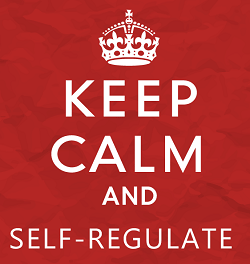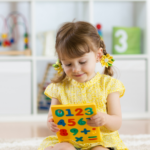
Self-regulation in early years
Self-regulation is so important in contributing to children becoming positive learners and for their long-term mental health.
So what is self-regulation?
Self-regulation is the ability to manage your own energy states, emotions, behaviours and attention, in ways that are socially acceptable. It enables us to monitor and control our own behaviour and adjust the way in which we behave according to where we are.
Self-regulation starts as babies
Learning about self-regulation starts right at the beginning as babies. We soothe babies in a calming way to help them to reduce their negative feelings and upset, to make them feel safe and comfortable again.
Over time with our understanding, help and support children will gain more understanding and control so that they can soothe themselves when they are upset, or calm down when they are over-excited.
How can you support the development of self-regulation?
- Provide structure and predictability
- Create developmentally appropriate environments
- Define age-appropriate limits
- Show empathy and caring
- Be a good role model.
Understanding the rules
Children need to understand that the rules at home might be different to the rules in your setting. This helps children to understand that they have to behave differently, in different ways, in different places.
For example, children playing outside at your setting may move around quickly, climb and be excited. However, when they are indoors they need to understand that there may be different rules, such as using their quiet voices and walking.
The self-regulation journey
- As they become more mobile, babies and toddlers will move away from their familiar adults to explore their environment, but they will keep returning for a quick cuddle or sit on your lap for reassurance
- Two-year-olds easily become frustrated and may not yet have enough understanding of their emotions or communication to verbalise their feelings. They need our understanding and to feel secure. It is important to stick to the rules and be consistent.
- As children get older their emotional behaviour and independence skills mature, this will help with their self-regulation behaviours. These skills will also help them to build friendships, interact and to share ideas and experiences with other children and adults.

This blog post was written by early childhood consultant Sue Asquith.
- Mental Health
- Self-regulation



